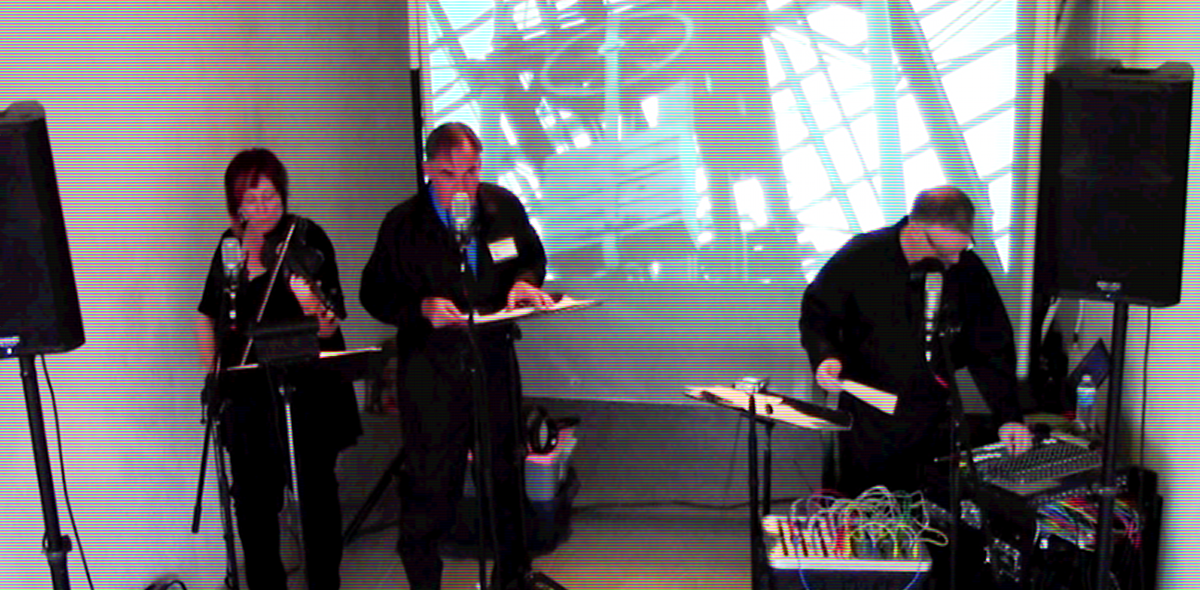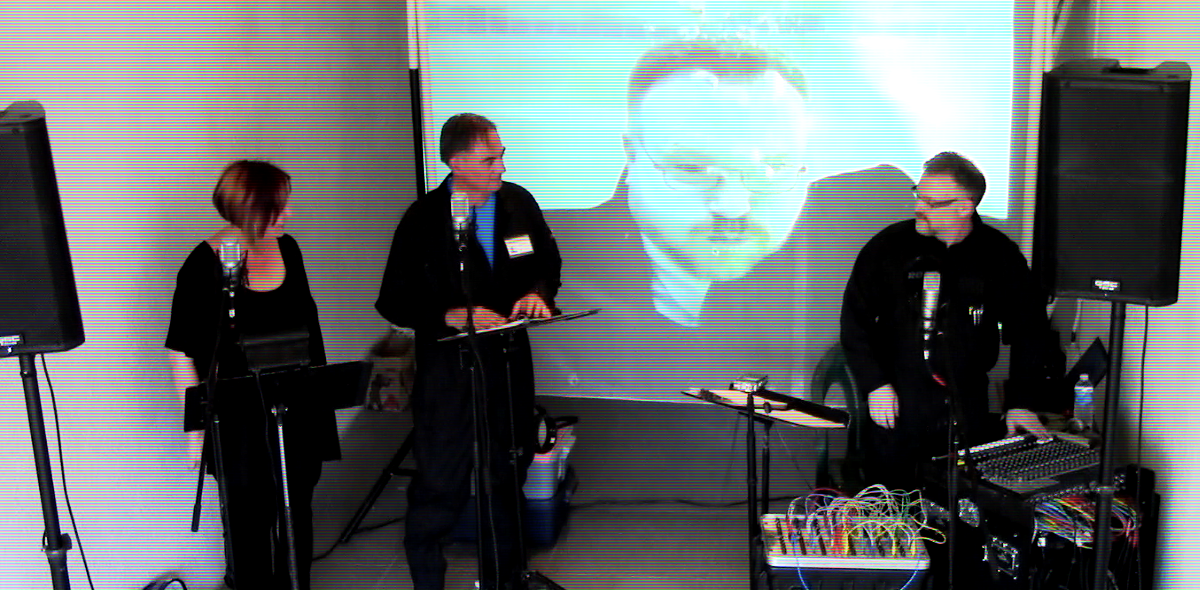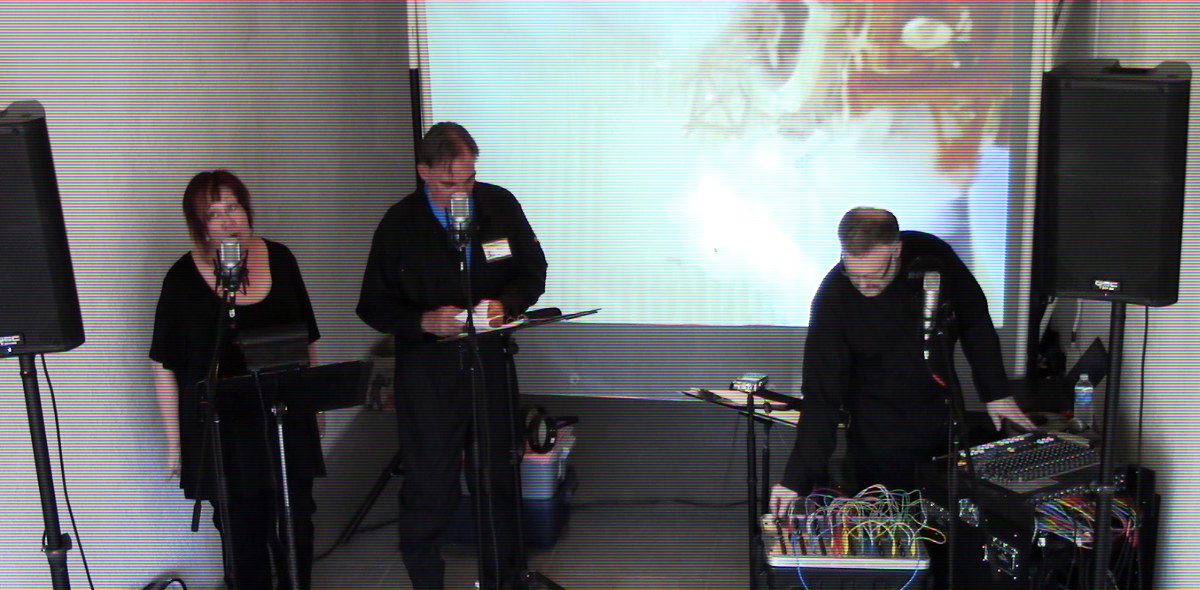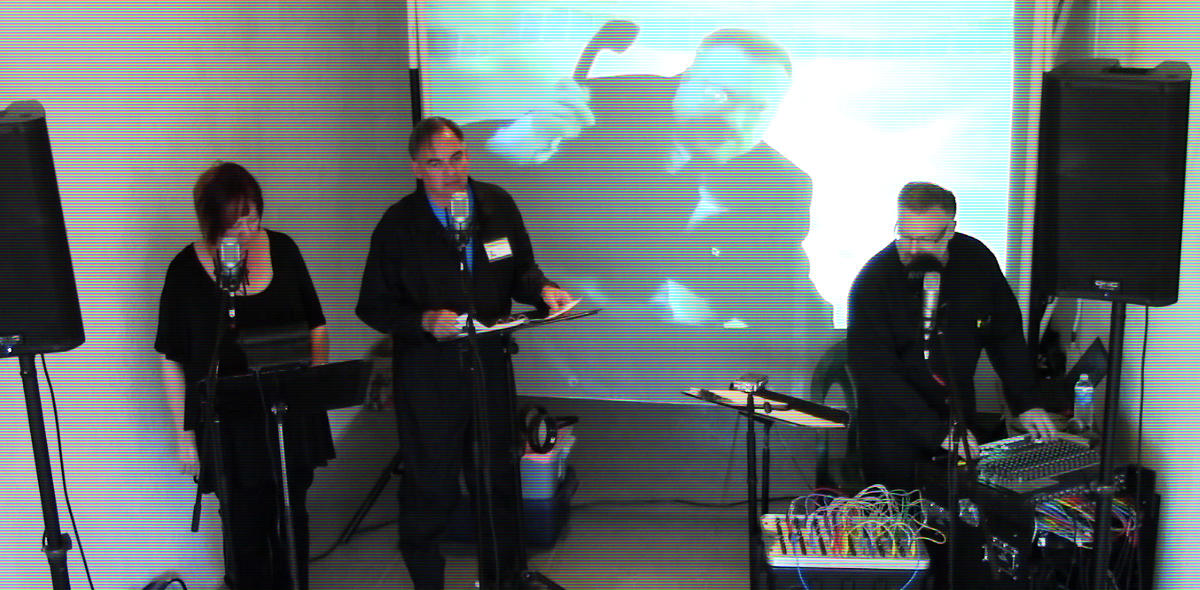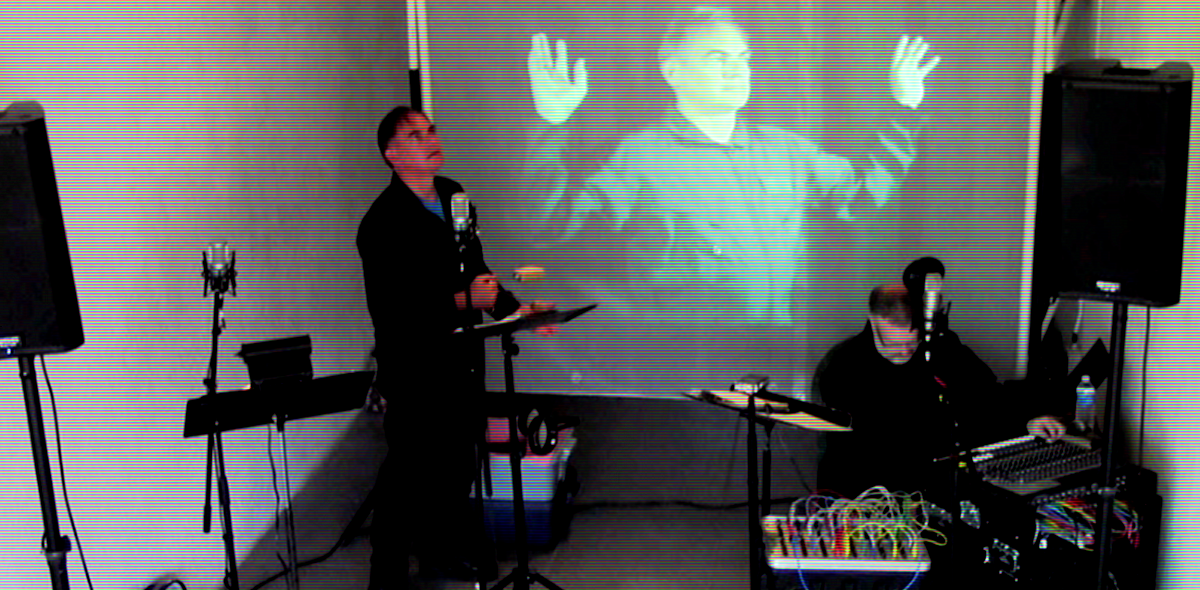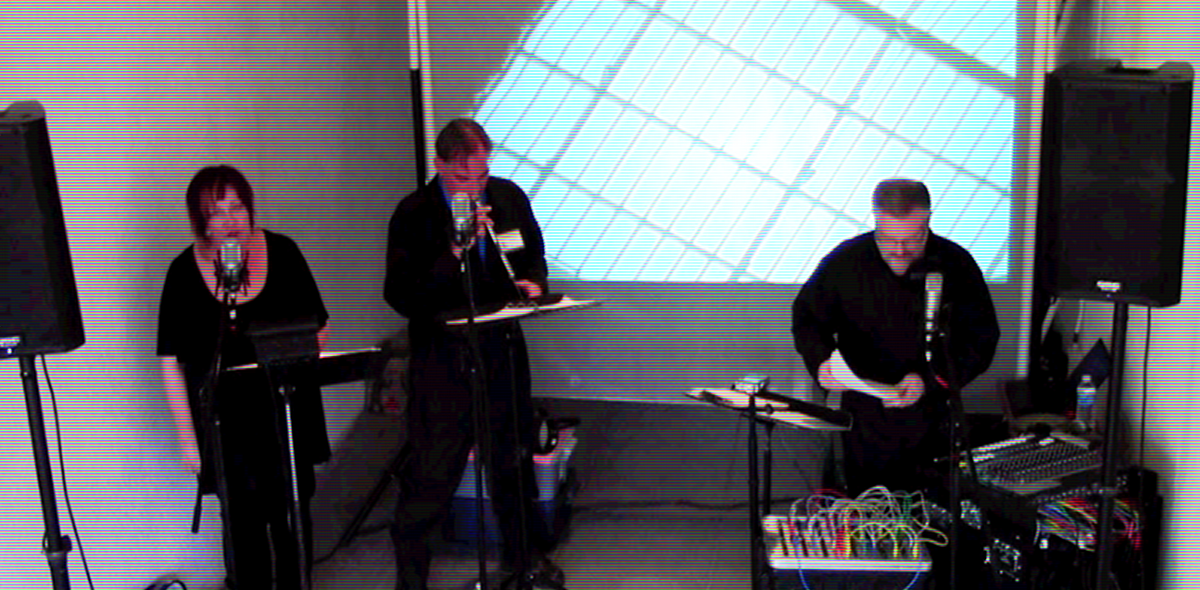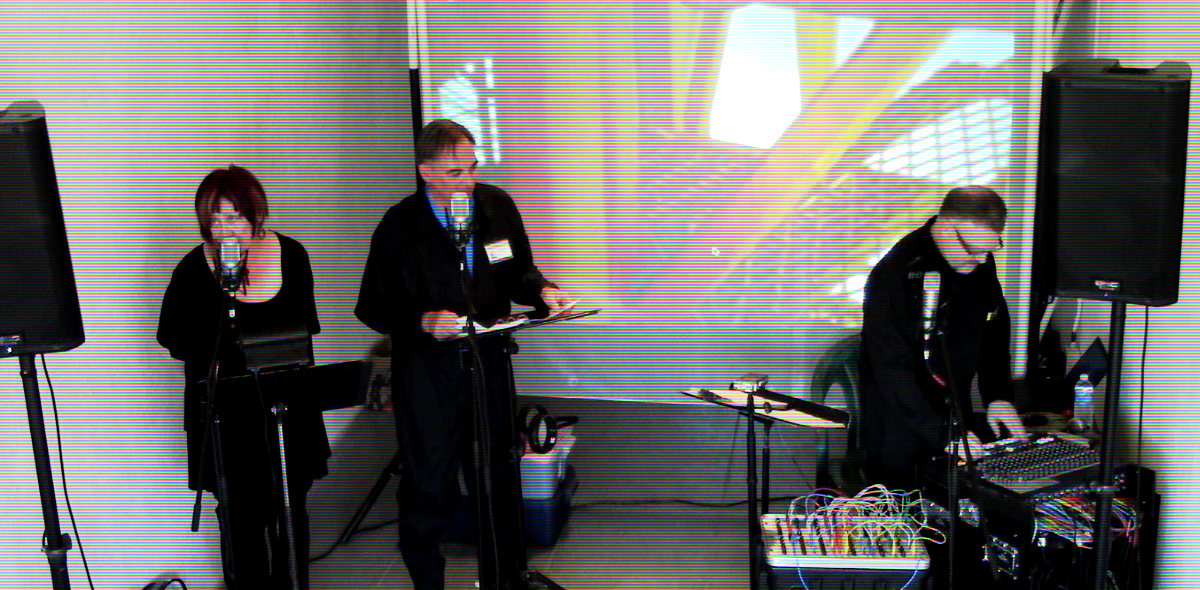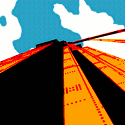SoundWalk 2012 project
Our third appearance at Long Beach Soundwalk marked several turning points. It was our most ambitious program, an exercise in overreach that would come to guide our future plans in a “Here be dragons” sort of way. It was our most extensive use of the MediaWiki application as a collaborative tool, eventually growing to some twelve individual wiki pages. And it was the last live performance by our initial “band” lineup. Each of these milestones flashed past in a blur; the fact we had passed them became evident in time.
By 2012, wikiGong.com faced obscurity as an open web resource and growing pains as a performing group, suspecting we might be neither. The organization sponsoring Soundwalk, Long Beach F.L.O.O.D.—its web presence lingers on as soundwalk.org—was particular about the content of these events: calls for proposal explicitly solicited “sound art” and discouraged traditional musical performance. Nevertheless, Soundwalk acts often walked a fine line between art happening and rock band. wikiGong performances explored some other grey area bounded by poetry jams, art video critiques, and new music rehearsals.
wikiGong program, Soundwalk 2012
Soundwalks were typically scheduled to last from 5:00 to 10:00 PM. Five hours is a lot of time to fill, and our ambition expanded to fit. We’d accumulated some signature works from prior events we thought we’d use to book-end new material, which we’d cycle through during the prime hours after dark. The event was trimmed to four hours—6:00-10:00 PM—by the time contributors were announced, so our resulting program looked something like this:
- SoNoGram (2010) video
- Entr’acte (2011) video
- Source audio is on the project notes page
- Epicycle:
- Buzz (2011) live
- Looking Backward (2012) live
- Oracle du Jour (2012) live
- Repeat three times
- Buzz
- Elegy for Matt Mason (2011) live
Links in the list above lead to pages with details about each piece: concept, source materials, documentary media if we have them.
Documenta
We’ve archived the old wiki pages with our working plans and notes to our blog. These three are encapsulated as SoundWalk 2012 (notes), which captured the old wiki project page:
- Program drafts
- Project chronicle
- Working punch list
As more turns up—and as media in our vaults becomes obsolete and fragile—we’ll post that, too.
For example, we managed to capture most of the Soundwalk 2012 evening on AVCHD video, though from a single camera angle (we were busy performing) and with a disappointing audio track. But we also captured most of the audio stream in WAV on a dedicated stereo recorder. Still, today—as noted in our February 23, 2013 blog post—the material exists but has not been married to produce a listenable video product.
That blog post also contains links to event media posted by others about the event. Sadly, some of it has faded away with time, and each maintenance sweep we do turns up more dead links. You may also get a security warning from your browser before following the YouTube links.
In retrospect
Looking backward, so to speak, we see wikiGong hoist on the petard of our own ambition. The effort required to develop two new works was huge, and we were all working day gigs. Our parallel working approach led to mutually-exclusive obsession on elements of certain pieces at the expense of others, and there was never sufficient time to rehearse. The experience was terminally exhausting.
The following year, F.L.O.O.D. hosted their final Soundwalk. Jacob and Dave managed to capture samples from the Gerald Desmond Bridge at last, and produced a set of interactive photo/audio objects we exhibited twice in Long Beach in 2013. We got out there again in 2014, but except for a few teasers on the blog page, we haven’t posted the files to the web.
Rebecca chose to sit 2013 out, reappearing in the audio track of 2014’s Transit.
“Major Matt Mason’s relief ship never arrived.”
The three of us haven’t performed together live since 2012.
—Mr_Yesterday, December 18, 2020
